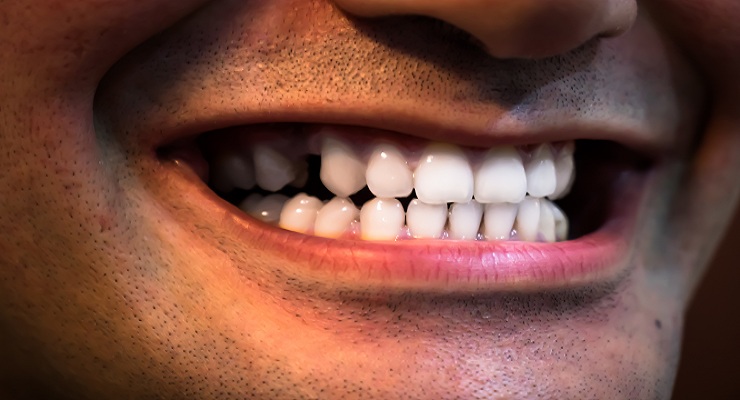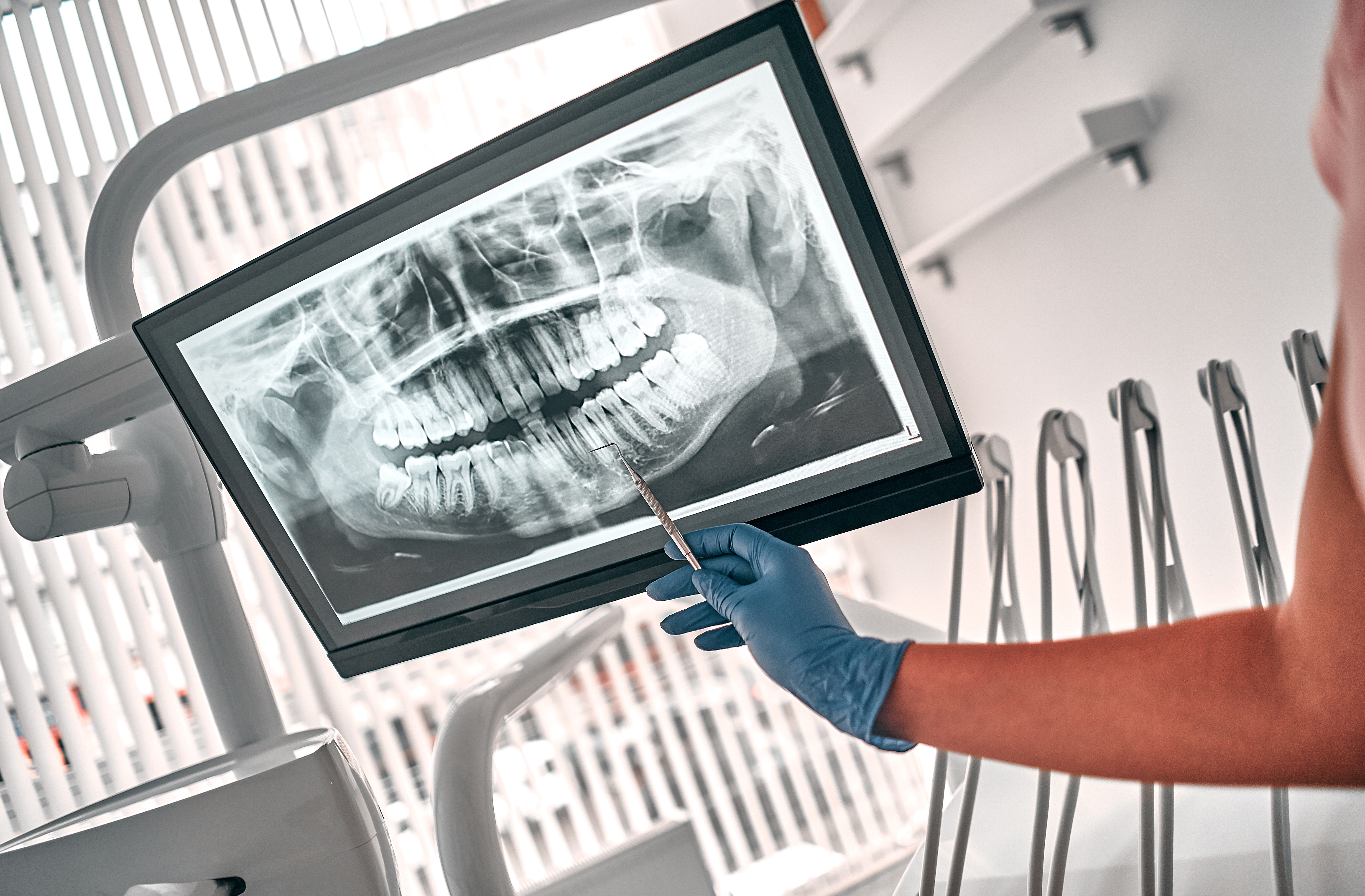$99 New Patient Special - Includes Exam, X-Ray and Basic Cleaning
Broken Tooth? An Emergency Dentist from Georgetown Can Help

A broken tooth can happen unexpectedly—from biting down on something hard to an accidental fall. When it occurs, swift action is necessary to minimize pain and prevent further damage. This is where an emergency dentist plays a crucial role. Whether it’s a minor crack or a significant break, an emergency dentist can assess the severity of the injury and provide immediate care. In this blog, we’ll explore why it’s essential to seek emergency dental care for a broken tooth, what to expect, and how to manage the situation until you can see a dentist.
Why You Shouldn’t Ignore a Broken Tooth?
A broken tooth might not seem like an immediate concern, especially if there’s no severe pain. However, leaving a damaged tooth untreated can lead to more serious complications, such as:
- Infection: A crack or break exposes the tooth’s inner layers to bacteria, which can cause disease.
- Increased Sensitivity: The dentin, or inner part of the tooth, is more sensitive to temperature changes, leading to discomfort when eating or drinking.
- Worsening Damage: A small chip or crack can expand over time, making the problem harder to treat and potentially leading to tooth loss.
Ignoring a broken tooth only increases the risk of requiring more extensive treatment later on, which can be avoided immediately by seeing an emergency dentist.
Types of Tooth Fractures and Their Treatment
Not all broken teeth are the same. The treatment plan depends on the type and extent of the break. Here’s a look at some common fractures:
- Chipped Tooth: The damage is superficial and often affects the enamel. Treatment may include smoothing the rough edges or applying a dental filling.
- Cracked Tooth: Cracks can run deep, sometimes reaching the root. Depending on the severity, treatment might involve bonding, a crown, or even root canal therapy.
- Split Tooth: A split occurs when the crack divides the tooth into distinct segments. A crown can sometimes save the tooth, but extraction might be necessary if the damage is too severe.
- Severely Broken Tooth: If a large part of the tooth is missing, restoration might involve a crown or dental implant if the tooth cannot be salvaged.
An emergency dentist can assess the situation and recommend the most appropriate treatment to restore your tooth and alleviate discomfort.
Immediate Steps to Take Before Seeing an Emergency Dentist
After breaking a tooth, acting quickly to minimize pain and prevent further injury is essential. Here’s what you can do while waiting for an emergency dentist in Georgetown:
- Rinse Your Mouth: Use warm saltwater to clean the area and reduce the risk of infection.
- Apply Gauze for Bleeding: If there’s any bleeding, place a piece of gauze over the area and apply gentle pressure.
- Use a Cold Compress: Apply a cold compress to the outside of your cheek to reduce swelling and numb the area.
- Save Any Broken Pieces: If part of the tooth has broken off, try to save it and bring it with you to the dentist. They might be able to reattach it.
These steps can help protect your tooth until you can get professional care.
How Emergency Dentists Repair Broken Teeth?
Emergency dentists have several options for treating a broken tooth, depending on the extent of the damage. Common procedures include:
- Dental Bonding: A composite resin can be applied to repair the damage and restore the tooth’s appearance for minor cracks or chips.
- Crowns: A crown may be necessary for more significant breaks to protect the remaining tooth structure and restore functionality.
- Root Canal Therapy: If the break exposes the tooth’s pulp, a root canal might be required to remove infected tissue and save the tooth.
- Extractions: In extreme cases where the tooth is beyond repair, extraction may be the only option, followed by placing a dental implant or bridge to fill the gap.
An emergency dentist can determine the best course of action based on the type of break and its severity.
The Importance of Acting Quickly
A broken tooth isn’t just a cosmetic issue—it can significantly affect oral health. Quick action is crucial for several reasons:
- Pain Relief: The sharp edges of a broken tooth can cause discomfort, and exposure to the nerve can lead to intense pain.
- Preventing Infection: A break leaves the tooth vulnerable to bacteria, which can cause infections in the surrounding gum tissue and other teeth.
- Preserving the Tooth: The sooner you see an emergency dentist, the higher the chances of saving the tooth. Delaying treatment can lead to more extensive procedures like root canals or extractions.
Seeking prompt care can minimize these risks and protect your overall dental health.
When to Seek Emergency Care?
Not every broken tooth requires emergency care, but certain symptoms indicate that immediate attention is necessary. These include:
- Severe Pain: If the pain is unbearable or constant, it’s a sign that the tooth’s nerve may be exposed or damaged.
- Visible Fracture or Missing Tooth: If a large portion of your tooth is missing or visibly fractured, it’s essential to see a dentist immediately.
- Bleeding or Swelling: Excessive bleeding or swelling around the tooth could indicate an infection or significant damage that requires urgent treatment.
- Loose Tooth: Emergency care is essential to prevent further damage or tooth loss if a broken tooth feels loose or unstable.
Recognizing these signs will help you determine when to seek emergency dental care.
How to Prevent Tooth Breakage in the Future?
While accidents are sometimes unavoidable, there are steps you can take to protect yourself from causing a chipped tooth in the future:
- Wear a Mouthguard: A mouthguard can protect your teeth from injury if you participate in contact sports.
- Avoid Chewing Hard Objects: Be mindful of hard foods, ice, and even fingernails, which can cause chips or cracks in your teeth.
- Regular Dental Checkups: Routine visits to your dentist help catch minor issues before they become major problems, reducing the risk of breakage.
Taking these precautions can protect your teeth and avoid the pain and inconvenience of a broken tooth.
A broken tooth can be a painful and urgent dental emergency, but it can often be repaired effectively with prompt care from an emergency dentist. From minor chips to severe fractures, knowing what to do and seeking the proper treatment ensures you maintain your dental health. Always act quickly when faced with a broken tooth, and don’t hesitate to contact an emergency dentist in Georgetown to prevent further complications.







